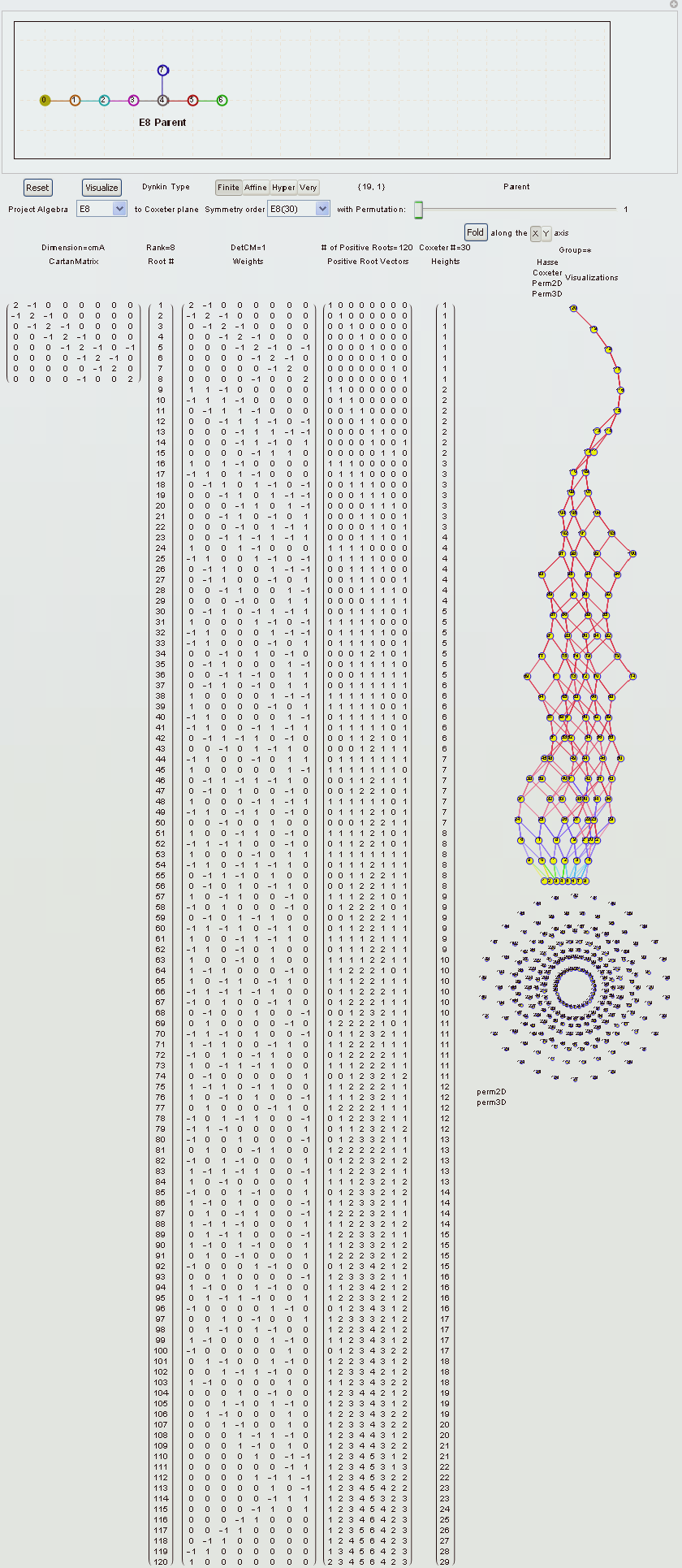Talk:E7 (mathematics)
| This article is rated Start-class on Wikipedia's content assessment scale. It is of interest to the following WikiProjects: | |||||||||||
| |||||||||||
Untitled
[edit]An elegant construction of E7 is described in Adams' book on exceptional Lie algebras. Namely, E7 as the sum of sl(8) and where the second summand is the space of alternating 4-forms in an 8-dimensional vector space. The sl(8) piece is a subalgebra. To define the bracket on the second piece as well as between the two pieces, there are elegant short formulas using natural pairings. Somebody should add this description. Katzmik 11:28, 16 August 2007 (UTC)
Is the Hasse diagram of the root poset correct?
[edit]Apologies if I'm missing something, but the Hasse diagram of the root poset here (and for several other root systems) does not make sense to me. I believe that, in general, the elements of height 2 should be in bijection with the edges, because the sum of 2 simple roots is a root if and only if they are connected by an edge. E7 has 6 edges but I only see 5 roots at height 2. An older version looks (more) correct to me, it at least has 6 elements at height 2. http://en.wikipedia.org/wiki/File:E7Hasse.svg
Any help understanding this would be appreciated! Kinser (talk) 20:58, 29 May 2013 (UTC)
- For a proper definition of the root poset see Root_system#The_root_poset. The E7 poset as shown is certainly wrong, the number of elements in the various ranks must be given by the sequence 7,6,6,6,6,5,5,4,4,3,3,2,2,1,1,1,1, while the shown poset only has 5 roots of rank 2. I provided already the proper root poset of type E6. The only problem with bigger posets is that I don't want to do it by hand and the poset becomes a little messy to generate it automatically -- I'll get back to that as soon as I find some time... The tree stump (talk) 09:26, 31 May 2013 (UTC)
- You two may be correct. I will investigate the paragraph of Mathematica code that I use to generate the Hasse diagrams from the Cartan matrices for all Lie Groups (it is based on output from "SuperLie" code) also compared against the open source "SimpLie" code base. Thanks for the heads up. I am also considering reworking the color coding of the edges and nodes. I have created an interactive demonstration that provides much more than the Hasse diagram. See below for an example:

- Jgmoxness (talk) 14:01, 31 May 2013 (UTC)
- Ok, I checked the code and diagrams. The "missing nodes" are not really missing, they are hidden behind a node in front. This is an artifact from the code that determines the horizontal position of the node (which is based on the root vector for that node and a dot product with a small table of the same rank. I just need to add a randomizer). This creates a small potential for overlap. I will take care of it. The node numbering is based on output from SuperLie Mathematica code for a given Cartan Matrix input (generated directly from a Dynkin diagram as graphical user interface (GUI) input. I will add the root vector text on each edge line in the diagram or some other way to add the detail (it may be hard to fit it in these larger groups).
- Jgmoxness (talk) 15:37, 31 May 2013 (UTC)
Query
[edit]Hi I think that "E7 appears as a part of the gauge group of one the (unstable and non-supersymmetric) versions of the heterotic string." needs an of, as in "E7 appears as a part of the gauge group of one of the (unstable and non-supersymmetric) versions of the heterotic string." But it could just be that I'm not following the logic. ϢereSpielChequers 22:05, 29 April 2021 (UTC)


